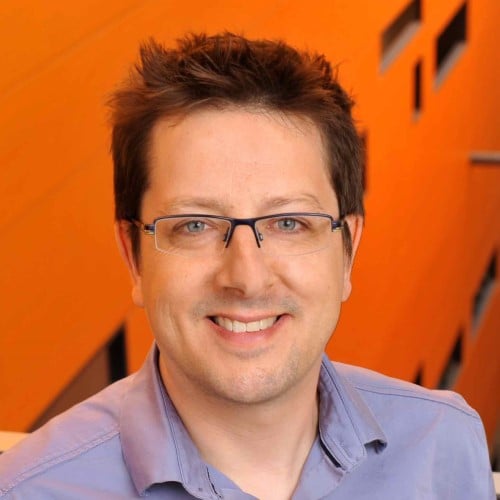About This Webinar
Vibrational spectroscopy techniques are used for a wide range of materials characterization applications that require detailed molecular fingerprinting and quantification of molecular species based on the detection of specific vibrational bonds. In medicine, inelastic scattering detection techniques were developed for microscopy studies based, for example, on coherent anti-Stokes Raman spectroscopy (CARS) and stimulated Raman scattering (SRS). Methods were also developed for bulk tissue interrogation and biofluid characterization at macroscopic scales.
In this talk, Frederic Leblond describes how the integration of technologies that rely on spontaneous Raman spectroscopy signal detection can complement current medical practice for surgical guidance, in situ diagnostics, and disease detection in biofluids. He presents case studies in infectious disease detection, neurosurgical oncology, breast-conserving surgery, bronchoscopy, prostate cancer diagnostics, and orthopedic surgery. He also addresses aspects relating to clinical translation, commercialization challenges, and regulatory strategies. Finally, he presents a SWOT (strengths, weaknesses, opportunities, and threats) analysis as it is related to the clinical deployment of vibrational spectroscopy techniques.
Who should attend:
Researchers, manufacturers, lab technicians, and R&D scientists who are interested in vibrational spectroscopy. Those working in medicine or the medical field who use Raman spectroscopy. Anyone who works in imaging, microscopy, biophotonics, and test & measurement.
About the presenter:
 Frederic Leblond, Ph.D., is a professor in the Department of Engineering Physics at Polytechnique Montreal and director of LumedLab. He is also a researcher at the CRCHUM medical research center. Leblond holds a bachelor’s degree in engineering physics from Polytechnique Montreal, a master’s degree in physics from Laval University, and a doctorate in physics from McGill University. His doctoral and postdoctoral research was focused on theoretical physics, particularly in relation to quantum mechanics and cosmology. He was then a senior researcher for three years and worked on the development of medical instruments at a Montreal medical imaging company. Prior to joining Polytechnique, Leblond was a professor of engineering at Dartmouth College in New Hampshire, where he was also affiliated with the Dartmouth-Hitchcock Medical Center. His research is related to the development of light-based medical devices to characterize biological tissues and biofluids to improve the accuracy and safety of surgical procedures as well as to develop techniques to improve the accuracy of medical diagnostics. He holds 12 patents and has published more than 110 peer-reviewed articles. He holds multiples research grants, including from the National Sciences and Engineering Council of Canada (NSERC) and the Canadian Institutes of Health Research (CIHR).
Frederic Leblond, Ph.D., is a professor in the Department of Engineering Physics at Polytechnique Montreal and director of LumedLab. He is also a researcher at the CRCHUM medical research center. Leblond holds a bachelor’s degree in engineering physics from Polytechnique Montreal, a master’s degree in physics from Laval University, and a doctorate in physics from McGill University. His doctoral and postdoctoral research was focused on theoretical physics, particularly in relation to quantum mechanics and cosmology. He was then a senior researcher for three years and worked on the development of medical instruments at a Montreal medical imaging company. Prior to joining Polytechnique, Leblond was a professor of engineering at Dartmouth College in New Hampshire, where he was also affiliated with the Dartmouth-Hitchcock Medical Center. His research is related to the development of light-based medical devices to characterize biological tissues and biofluids to improve the accuracy and safety of surgical procedures as well as to develop techniques to improve the accuracy of medical diagnostics. He holds 12 patents and has published more than 110 peer-reviewed articles. He holds multiples research grants, including from the National Sciences and Engineering Council of Canada (NSERC) and the Canadian Institutes of Health Research (CIHR).